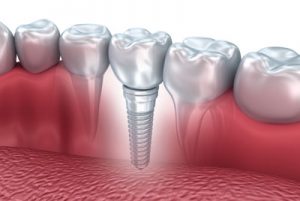Everything You Need to Know About Mini Dental Implants

While many people are familiar with traditional dental implants, their smaller alternatives, mini dental implants are catching up really fast. These are typically used as a substitute for patients who decide not to go for conventional implants or are not eligible for such procedures due to the conditions of their teeth. Others opt for mini implants simply because they do not want to undergo any invasive measures.
To better understand what mini dental implants are, we need a solid understanding of what implants in general are.
What are dental implants?
These are devices that are typically used to deal with cosmetic issues likes gaps between your teeth or missing teeth. Such issues do not always require implants. Your oral surgeon might decide to go with bridges or dentures instead. These are artificial teeth that are placed on your gum's surface or attached to your teeth. That's very different from implants which typically consist of a titanium post that is fused to your jawbone. A post is attached to the externally-facing end of the titanium post, and that serves as a base that holds your artificial teeth in place.
The reason why you might opt for implants over dentures is that it offers a more secure fit for your false teeth. Traditional dentures are constantly shifting and slipping, especially when you are eating. Not everyone who would like to get these titanium implants is eligible for it. You need to have enough healthy bone in your jaw or your dentist might recommend other options.
What are mini dental implants?
Mini dental implants are a lot like traditional implants. Like the name implies, they are just a smaller version of the latter. Traditional implants are anywhere from 3.4 to 5.8 mm wide, while the largest mini implants are no more than 3.3 mm. They can be as small as 1.8 mm.
Mini implants also utilize titanium posts, but instead of a base, the external facing end has a socket with a rubber ring that is used to attach your artificial teeth to the post.
Most common uses of mini dental implants
These mini appliances can be used as a base for most types of artificial teeth. Some of these include:
- Bridges
- Dentures
- Crowns
- Lower arch dentures
How the process works
Getting dental implants normally requires at least two visits to the doctor, and additional visits might be required. Mini implants can typically be installed in only one visit, and there is no need for sutures, only some local anesthetic. That makes it the best option for those who are not willing to go through intrusive surgeries and those who have lost significant amounts of bone mass in their jaw that prevents them from getting regular implants. Recovery also comes quicker with mini implants. You will be using your newly installed artificial teeth in a day or so.
If you think you are a prime candidate for mini implants, schedule an appointment with your dentist to find out how to get things started.